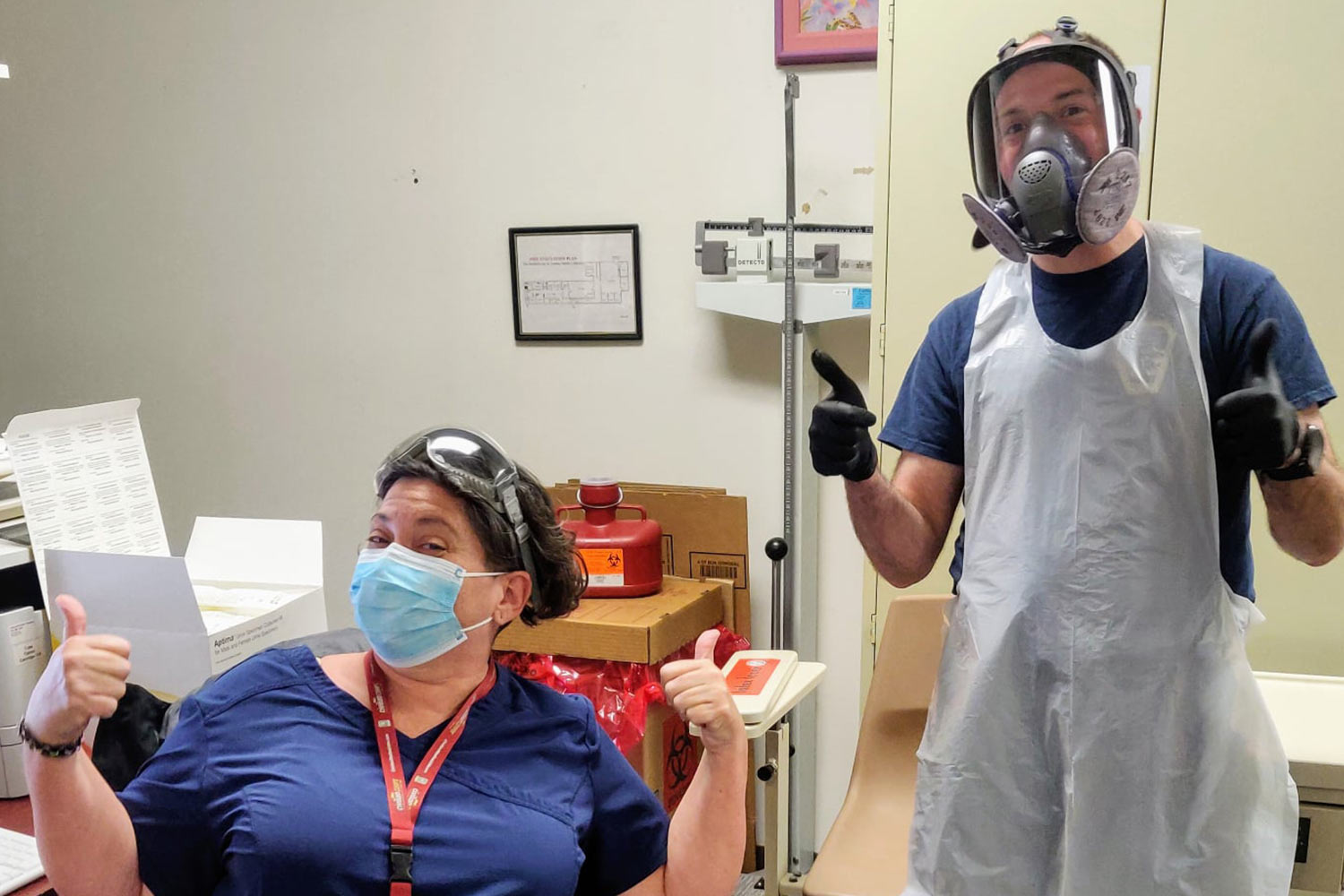Staying at the forefront of sexual education and health is the goal of the Hartford Gay and Lesbian Health Collective (HGLHC), an important resource and member of the community since 1983 when it was founded by volunteer healthcare workers. They have been treating and supporting the community since then, including staying on top of such recent developments as advances in PrEP for reducing the risk of HIV infection through sexual contact.
In December of 2020, the Food and Drug Administration (FDA) approved the drug Apretude for pre-exposure prophylaxis (aka PrEP) to prevent sexually acquired HIV among high-risk populations. The drug is designed to be administered initially in two doses one month apart and then every two months thereafter.
 According to the FDA, the safety and efficacy of Apretude to reduce the risk of acquiring HIV were evaluated in two randomized, double-blind trials that compared Apretude to Truvada, a once daily oral medication for HIV PrEP. The FDA found that the injectable drug was 69 percent more effective than Truvada daily PrEP pills in reducing HIV transmission among cisgender men and transgender women, and 90 percent more effective among cisgender women. (Truvada pills have been shown to be lower the risk of sexual transmission of HIV by 99 percent, so the effectiveness of the injection is greater than pills.)
According to the FDA, the safety and efficacy of Apretude to reduce the risk of acquiring HIV were evaluated in two randomized, double-blind trials that compared Apretude to Truvada, a once daily oral medication for HIV PrEP. The FDA found that the injectable drug was 69 percent more effective than Truvada daily PrEP pills in reducing HIV transmission among cisgender men and transgender women, and 90 percent more effective among cisgender women. (Truvada pills have been shown to be lower the risk of sexual transmission of HIV by 99 percent, so the effectiveness of the injection is greater than pills.)
This is good news for many reasons, according to Kim Adamski who is the HIV prevention specialist for HGLHC. She notes, “the appeal of this is that it can be helpful for folks who don’t have great access to medical services.
Adamski does say that PrEP is expensive. Without insurance, pills are several hundred dollars a month, and the injectable version can cost as much as $3,700 per dose, but not a lot of insurance plans are covering it yet, unlike pills. Adamski says the HGLHC has many assistance programs, so most people are able to get the drugs (whether pills or injectable) for no, or very little, out-of-pocket expense, and the center provides it after an intake and screening process that ensures that a client is getting the right medicine, and the right insurance coverage or financial assistance.
Yet, whatever choices one makes for their sexual health and PrEP, Adamski and other sexual health professionals strongly advised that people still practice safe sex, which means use of condoms. PrEP offers no protection against other STIs.
Beyond PrEP, HGLHC is a resource and care provider in Hartford. Located at 1841 Broad Street near Trinity, the center runs STI clinics and provides all kinds of sexual health care. Adamski says, that gay men make up the largest cohort that uses the center, but they also serve lesbians, bisexuals, and, yes, even straight people.
“Sometimes people come to us because they just like it better. I like to think that we have a nice, accepting atmosphere, and we get a lot of positive feedback about that.” Trans people, in particular, appreciate the care they get, and they might feel uncomfortable going to an OB GYN in a very gendered environment.
Education is a big part of Adamski’s role at HGLHC. Though most of the center’s clients are adults, she does do outreach to kids. “We have a TikTok for enriching younger folks, and that’s really fun. I make a fool of myself every day to teach kids.” One of her most widely viewed videos was about a female condom, and while some people are critical, many others comment that they never got this information in their sex ed classes, and it’s invaluable to them. She also posts an “Ask Kim” column on the HGLHC website, where people can ask questions confidentially.
When asked about the pushback in other part of the country about sex ed, Adamski gets somewhat frustrated. She says there is data that shows young people who get comprehensive sex education actually delay their first sexual experience. “So, when people worry that we’re going to create ‘sex maniacs’ if we teach them about sex, that’s absolutely not true.”
For parents or adults who interact with children—and who may get some questions that might be offputting if they’re unprepared—Adamski recommends the book Talk to Me First by Deborah M. Hoffman. She says, “It’s about providing sex education basically form the time a child is able to understand it in an age-appropriate way.”
For those looking to find out more about PrEP, injectable PrEP or any issues related to sexual health, the open, accepting people of HGLHC are dedicated to helping. Their motto—with which Adamski signs off every post—is “Be well, be yourself.” These are the words Adamski and her colleagues live by, and the community is better for that.









More Stories
Dancing in Hard Times
Breaking Access Barriers: Connecticut’s Bold New Step Toward Mental Health Parity
Three Gay Guys Talking Cars